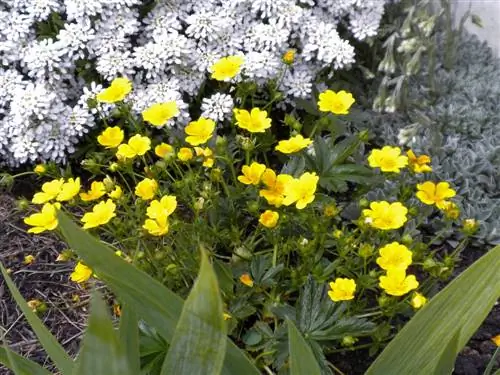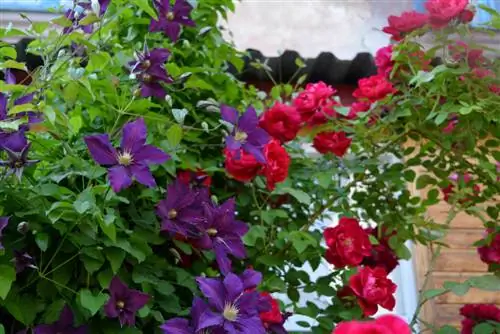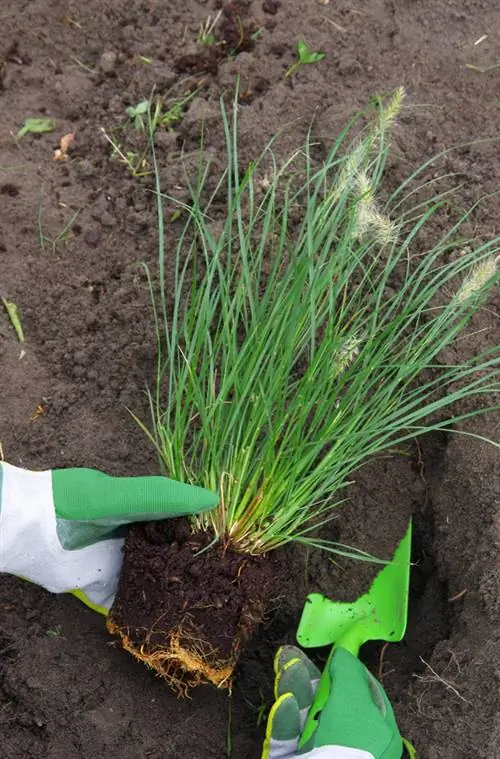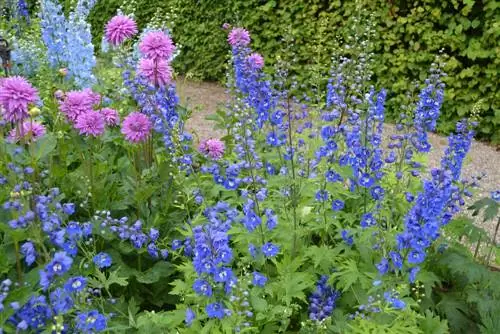- Author admin [email protected].
- Public 2023-12-16 16:46.
- Last modified 2025-01-23 11:22.
The extremely easy-care finger bush becomes a long-lasting flowering hedge or an ornamental tree that, in conjunction with other plants, can decoratively enhance landscapes. Which combination partners are suitable for the finger bush and how do you stage them together?
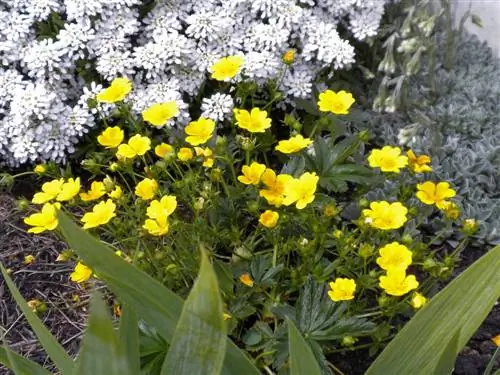
Which plants can the finger bush be combined with?
Plants such as roses, lavender, grasses, veronica, ranunculus, sedum, sedum and, in the pot, blue cushion, feather grass, sedum, verbena and lavender go well with a crab bush. Pay attention to similar location requirements and harmonious flower colors.
What factors should you consider when combining the crabgrass?
A successful combination with the crab only occurs when the companion plant is tailored to its nature. Therefore, pay attention to the following factors:
- Flower color: white, yellow, rarely pink or orange
- Flowering time: June to October
- Location requirements: sunny to partially shaded, nutrient-rich and permeable soil
- Growth height: up to 130 cm
Since the finger bush presents its mostly yellow or white flowers from summer to autumn, it is recommended to combine it with plants that harmonize with it.
When looking for beautiful companion plants, remember that they should have similar location requirements as the crab. Shade-loving plants should therefore not be an option for him.
There are smaller specimens of the finger bush whose growth height makes them ideal for the foreground and in combination with low planting partners. The larger representatives should be placed further back so as not to obscure other plants.
Combine cinquefoil in the bed
Since the finger bush is extremely undemanding, it fits into all beds that are in a sunny location. There he can easily be united with other sunbathers. For example, put tall grasses in its background and flowering plants such as roses or sedums in its immediate vicinity.
With the following companion plants, the finger bush comes into its own:
- Roses
- Lavender
- Grasses such as pampas grass, miscanthus and feather bristle grass
- Strauchveronika
- Ranunculus
- Sedum
- wig bush
Combine cinquefoil with lavender
Both the crabgrass and the lavender like a sunny and warm location. They can both deal with drought without worry. In addition, this combination impresses with its appearance: In contrast to the finger bush, lavender produces elongated flower spikes in a violet color, while the finger bush has cup flowers in a contrasting color.
Combine cinquefoil with shrub veronica
The rounded shape of the shrub veronica matches that of the crab. These two look fantastic planted next to each other, but at a natural distance so that they can spread unhindered. A combination of yellow crab and purple shrub veronica provides a colorful eye-catcher.
Combine cinquefoil with floribunda rose
If you want to add a touch of grace to floribunda roses, plant the crab bush in the neighborhood. It has similar location requirements as floribunda roses. Since it grows significantly higher, it should be placed behind the roses. Red, purple and pink roses - double or unfilled - come to life in front of the yellow flowers of the finger bush.
Combine cinquefoil in the pot
The crab can also find its place to thrive in a pot. It can be impressively combined with ground cover plants, but also with larger perennials and grasses. The following plants, among others, go well with him in the pot:
- Blue pillow
- Feather grass
- Cushion stonecrop
- Vervain
- Lavender
Combine cinquefoil with blue cushions
The blue cushion forms an impressive contrast when combined with a yellow or orange flowering cimbra. While it covers the root area of the finger bush with its lush carpet of flowers, the finger bush shines above the blue cushion.

